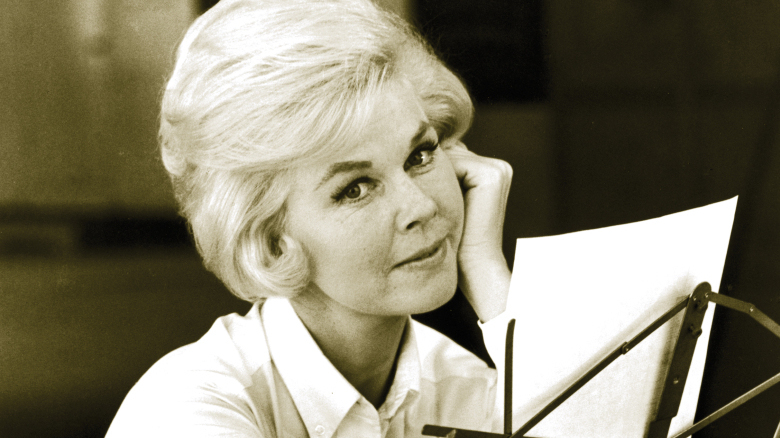Actress and singer Doris Day made nearly three dozen films and more than 600 recordings. At the height of her career, she topped both the billboard and the box office charts. Day died of pneumonia on Monday at the age of 97.
Day remains one of the most successful female movie stars of all time. She embodied the “girl next door” even in her 40s, which is probably why her films with Rock Hudson were so successful. A scene from 1959’s Pillow Talk shows a split screen with Day and Hudson in their separate bathtubs, only it looks like they’re in the same one — with their feet touching. Kind of risqué for 1959.
That was Day at the height of her film success, but her career began as a big band “girl singer,” and with Les Brown’s big band she had one of the biggest hits of World War II: “A Sentimental Journey.” For many GIs, Doris Day represented the kind of girl you’d want to fight for and come home to.
The end of the war brought the end of the big band era and the beginning of Day’s film career. Alfred Hitchcock used Day’s voice as a plot device in The Man Who Knew Too Much, in which a distraught Day sings a distress signal, “Que Sera, Sera,” to her kidnapped son. It became her signature tune and went to the No. 2 spot on the charts.
Will Friedwald wrote a book on jazz singing. He said Day’s success with pop and novelty songs overshadowed a simple fact: She was a phenomenal singer, both technically and artistically.


